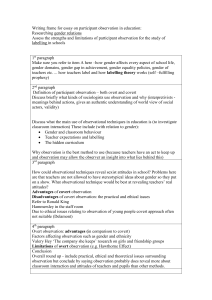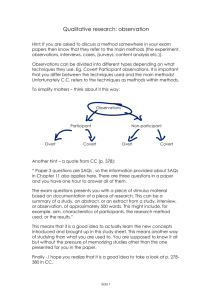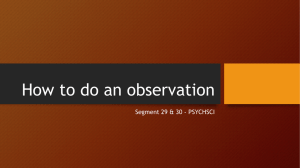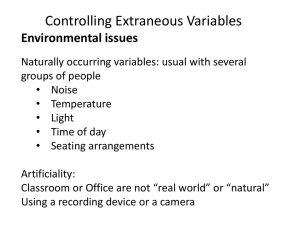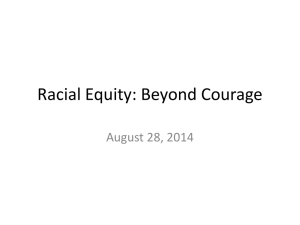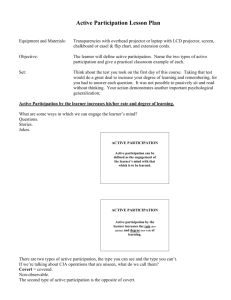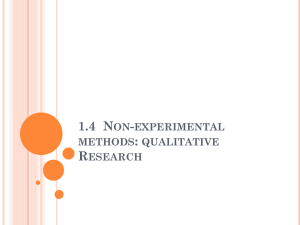Research Methods
advertisement
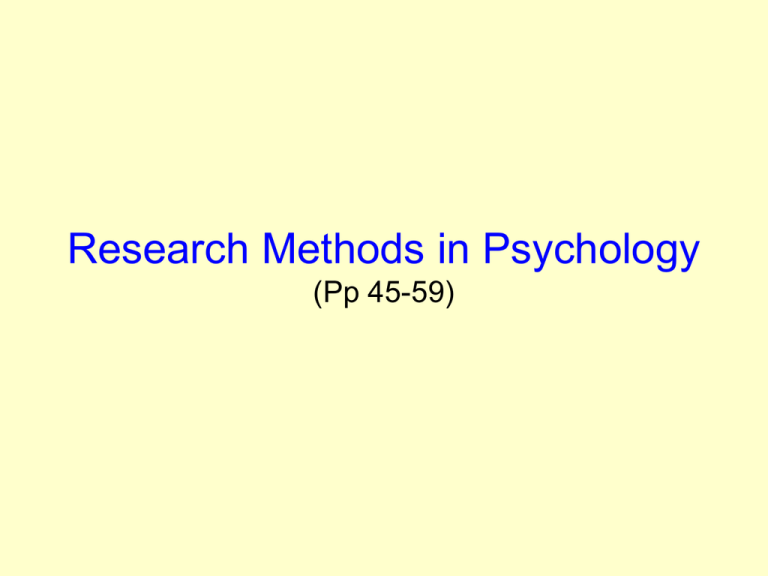
Research Methods in Psychology (Pp 45-59) Observations Can be used in both experimental and nonexperimental research; can be used quantitatively or qualitatively Types of Observations • Covert observations are when the researcher pretends to be an ordinary member of the group and observes in secret. Though participant expectancy is less of a problem, ethical dilemmas occur with the deception. • Overt observations are when the researcher tells the group he or she is conducting research (i.e. they know they are being observed); increases participant expectancy which may alter the participants natural behavior (Hawthorne effect). Participant Observations • Researcher blends in with the natural environment • Have high ecological validity • May be covert or overt • If covert, reliability and validity increase but ethics is a concern • If overt, ethical dilemmas are reduced but participant expectancy may increase Nonparticipant Observations • Researcher does not blend in with the natural environment • May be covert or overt • If covert, reliability and validity increase but ethics is a concern • If overt, ethical dilemmas are reduced but participant expectancy may increase Naturalistic Observations • May have high ecological validity • Ethnographies document group cultural practices • Detailed accounts of behavior possible often kept through diaries • May be covert or overt • If covert, reliability and validity increase but ethics is a concern • If overt, ethical dilemmas are reduced but participant expectancy may increase Setting Up Observations • • • • • Determine goal of observation Learn about topic (ie, addiction) Choose a research site Decide on researcher role Gain access to participants Carrying Out An Observation • If overt, build and maintain rapport with participants • Collect quality data through rigorous notes; collect thick descriptions (extremely detailed accounts of the setting and context as well as what happened) • Focus on what is important for the study • Conduct interviews with key participants • Check interpretations with other researchers • Debrief participants Analyzing Data Grid method • Controls experimenter bias • Allows use of descriptive statistics Inductive Methods As with interviews, inductive methods (such as grounded theory) are the best choice for analyzing qualitative observations. Researchers constantly code data into categories until a point is reached when no new themes emerge. Pros and Cons of Observation Research Pros: • It is valuable to see how people behave in a natural setting and an observation provides very detailed qualitative information which can be used as a starting point for further, more controlled research. • It can be used when other methods might be unethical. Cons: • The presence of observers could influence the behaviour of those being observed, and it is difficult to control extraneous variables. • It is difficult for another psychologist to replicate the observation (inter-rater reliability) • Because there are so many variables which could affect behaviour it is not possible to draw conclusions about cause and effect DVD (Qualitative Research: Methods in the Social Sciences)


